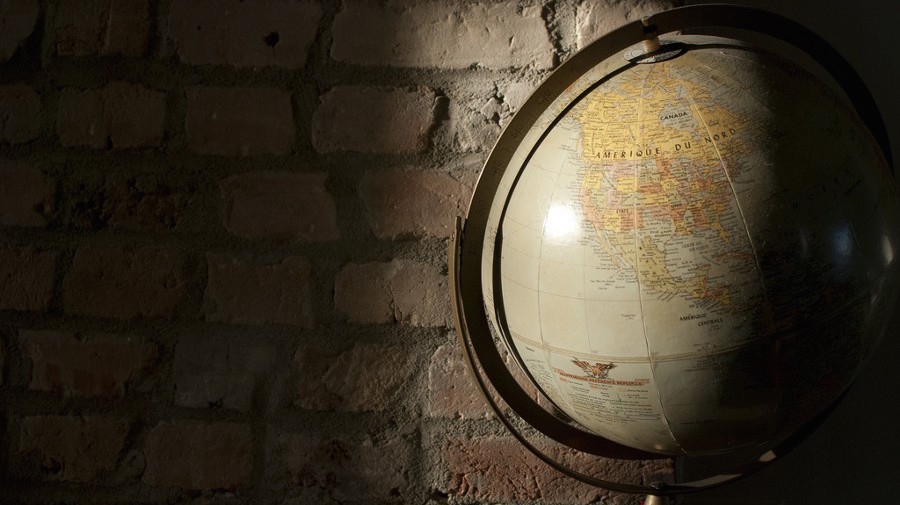Misinformation around news on the social web is a truly global issue and around the world there are many groups and projects rising to the verification challenge. Here’s a by-no-means-exhaustive run down of a few projects we at Meedan have been watching recently.
Have you seen any great international verification efforts that we’ve missed? Share them with us in the comments here or at @FirstDraftNews on Twitter.
1. DaBegad? — ده بجد؟
Where: Egypt
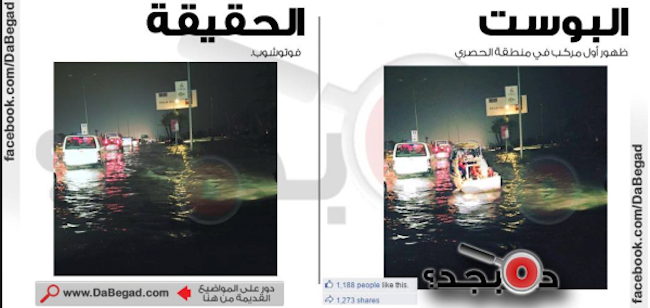
A typical DaBegad? debunk: on the right is the post as shared, on the left we see “The Truth” (in this case, it was a Photoshop)
Launched as a Facebook page to “expose social media hoaxes and lies” in April 2013, DaBegad? (Arabic for: “Is that for real?”) has grown a huge following of over 700,000 people.
DaBegad? uses highly shareable image mashups to debunk or verify all kinds of viral posts on Egyptian Facebook, from humorous tidbits to serious news-related content. Posts are primarily in Arabic, though there is a smaller and less active English-language page.
Recently, the team have been verifying and debunking images related to recent flooding in northern Egypt and the second city of Alexandria, finding numerous examples of photoshopped posts, and old images from floodingelsewhere in the Middle East that were also being shared widely as Alexandria.
2. StopFake
Where: Ukraine
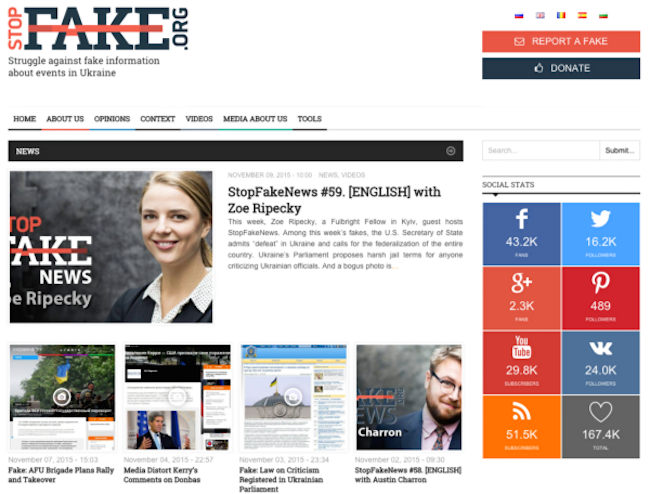
StopFake is a community verification effort launched in Ukraine to check “facts, verify information, and refute verifiable disinformation”.
Publishing in at least 5 languages (including English) StopFake has become a go-to source for Ukraine and Russia related debunks, taking aim not only at rumors shared via social media, but also inaccurate reporting by Russian and Western media on Ukraine.
StopFake partnered with English-language broadcaster Ukraine Today last month, screening its weekly digests of debunks to an even wider audience.
3. 140Journos
Where: Turkey
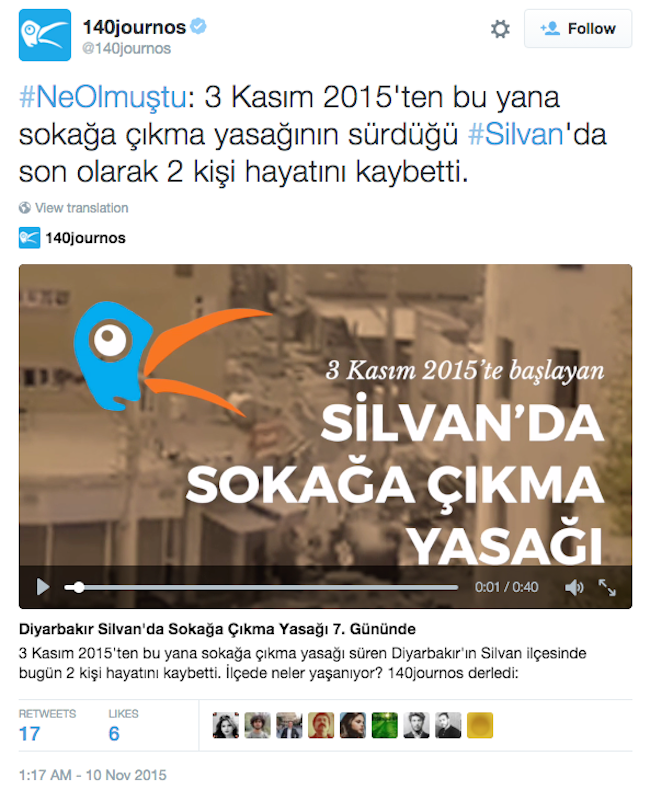
@140Journos has over 77,000 followers on Twitter
140Journos is a Turkish volunteer-led journalism effort dedicated to providing uncensored, verified news via social media that rose to international prominence during the widespread misinformation and rumors around the Gezi Park protests in 2013.
140Journos has worked on several high profile debunks: they were swift to debunk claims that Turkish police were using Agent Orange against protesters in Istanbul in 2013, and more recently they verified and tracked claims of voter fraud in Turkey’s 2014 municipal elections.
4. France24 Observers
Where: International
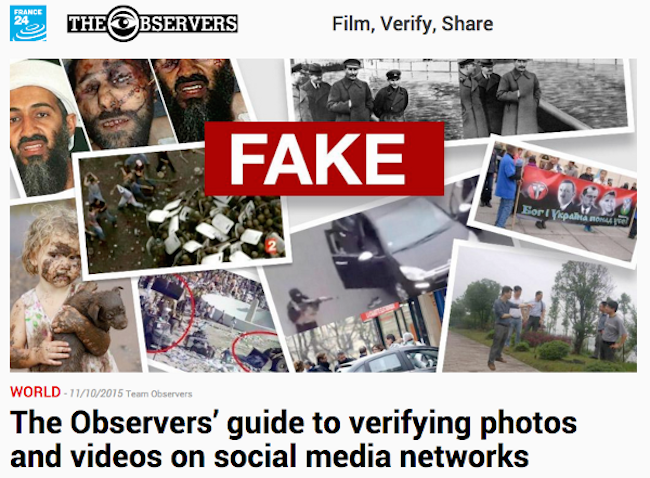
Launched by French news channel France24 in 2007 both as a TV show and an online community-driven news project, the Observers (‘Observateurs’ in French, though they also publish in English, Arabic and Farsi) is a global network of citizen contributors that share and verify eyewitness media on international news stories.
The Observers released a guide for verifying photos and videos earlier this week — worthwhile reading alongside the First Draft guide — and one of the biggest recent stories came in debunking an image of a “Russian soldier on crusade in Syria” as fake.
Read more about the Observers.
5. Una Hakika
Where: Kenya
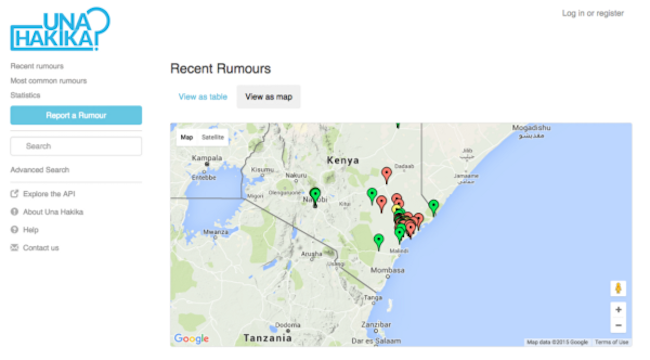
Una Hakika maps and verifies SMS reports of rumors in Kenya’s Tana Delta
Based in Kenya’s Tana Delta, Una Hakika (Kiswahili for ‘Are you sure?’) uses WikiRumours to allow community members to report rumors via SMS. Reports are then prioritized and verified or debunked by the Una Hakika, who are on a mission to mitigate the harmful effects of misinformation.
Many of Una Hakika’s verification efforts are related to rumors around local tensions between different ethnic groups in the Tana Delta, where — according to The Sentinel Project — “rumours and deliberately created misinformation have fuelled conflict between the Orma and Pokomo” which in 2013 left 166 dead and tens of thousands displaced.
6. Akeed.jo
Where: Jordan
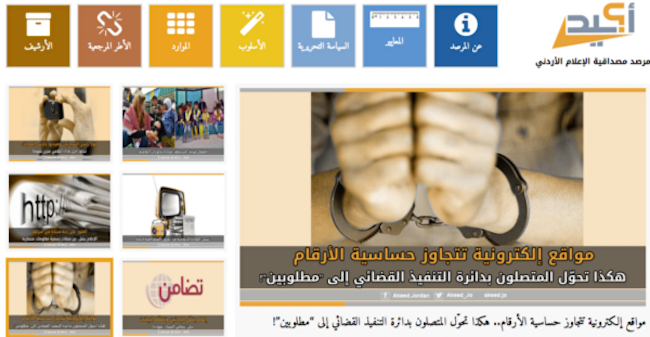
Akeed.jo (Arabic for ‘certain’) is an Arabic-language portal aiming to hold both citizen and mainstream media in Jordan to account by monitoring for accuracy and verifying news reports. Community members can submit stories for investigation along with why they think a report is true or false, and the Akeed.jo team will verify and publish, according to its established criteria.
Akeed.jo pay particularly close attention to the way news sites use photos and are quick to call out old photos and videos used in misleading contexts by prominent news websites.
7. HKVerified
Where: Hong Kong
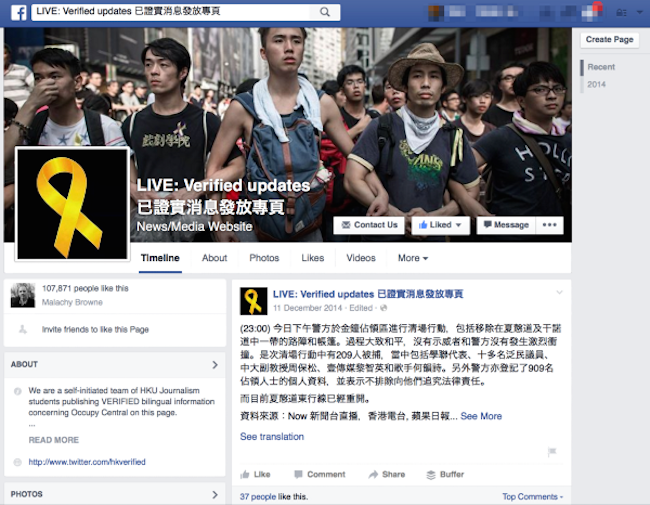
Established during the 2014 protests in Hong Kong (and inactive since then), HKVerified is a great example of verification efforts that have started to spring up around social movements. Publishing in Chinese and English on Facebook, the HKVerified community worked to investigate, verify and debunk reports about the Occupy Central movement, at a time when rumor and misinformation were rife.



